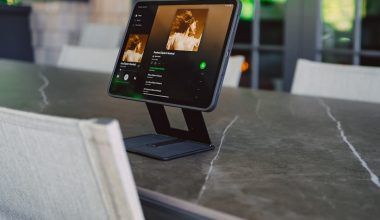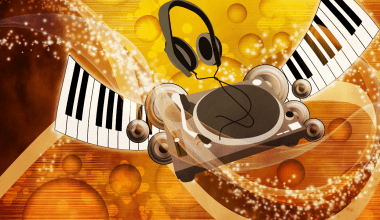A synthesizer, often called a “synth,” is a musical instrument that creates sound electronically. Unlike a guitar or piano that uses physical vibrations to produce sound, synthesizers generate sound using oscillators, filters, and other sound-shaping tools. This means you can create anything from soothing melodies to wild, otherworldly sounds.
Whether you’re new to music or a seasoned pro, picking the right synthesizer can feel like a big task. Don’t worry; this synthesizer buying guide is here to make it super simple.
Why Do You Need a Synthesizer?
Synthesizers are incredibly versatile. They are used in nearly every type of music, from pop and hip-hop to classical and experimental. Here are a few reasons you might want one:
- Create Unique Sounds: Synths allow you to shape sound in ways other instruments can’t.
- Play Live: Many synthesizers are great for live performances.
- Make Music at Home: Synthesizers can be easily connected to computers or recording setups.
Types of Synthesizers
Synthesizers come in different shapes and forms. Each type has its own strengths and is suited for different musicians. Let’s take a closer look:
1. Analog Synthesizers
Analog synthesizers are like the granddaddies of the synth world. They use old-school circuits to create sounds.
- What they’re great for: Warm, rich sounds that feel alive.
- Downside: Can be expensive and need more care.
- Examples: Moog Subsequent 37, Korg MS-20 Mini.
2. Digital Synthesizers
Digital synthesizers use computer-like technology to create sound.
- What they’re great for: Versatility, lots of built-in sounds (called presets), and effects.
- Downside: Some people think they sound less “warm.”
- Examples: Yamaha MODX, Roland Juno DS.
3. Hybrid Synthesizers
A mix of analog and digital technologies, hybrid synthesizers give you the best of both worlds.
- What they’re great for: Musicians who want both warm analog tones and modern digital flexibility.
- Examples: Novation Summit, Arturia PolyBrute.
4. Modular Synthesizers
These are like LEGO sets for musicians! You can build them piece by piece to suit your needs.
- What they’re great for: Experimenting with sound and creating unique setups.
- Downside: Can be confusing for beginners.
- Examples: Make Noise 0-Coast, Moog Mother-32.
Important Features to Look For
Before you buy a synthesizer, there are some key features you should consider. Here’s what to think about:
Polyphony
Polyphony is the number of notes a synthesizer can play at the same time.
- Monophonic Synths: Play one note at a time, great for bass and lead sounds.
- Polyphonic Synths: Play multiple notes, perfect for chords and layered sounds.
Number of Keys and Key Action
The size and feel of the keys can make a big difference:
- Full-sized, weighted keys feel like a piano and are great for professional players.
- Mini keys are lighter and more portable.
Connectivity
Look for features like MIDI or USB connections. These let you hook your synth up to a computer or other music gear.
Built-in Effects
Many synthesizers come with effects like reverb, delay, and chorus, which can make your music sound even better.
Presets
Presets are ready-made sounds that come with the synthesizer. They’re perfect if you don’t want to spend hours tweaking sounds.
How to Choose the Right Synthesizer for Your Level
For Beginners
If you’re just starting, look for a synthesizer that’s easy to use and comes with presets.
- Examples: Korg Volca Keys, Yamaha Reface CS.
For Intermediate Players
If you’ve been playing for a while, you might want something with more features. Look for a synth with extra controls for shaping sound.
- Examples: Novation Bass Station II, Roland JD-Xi.
For Professionals
For pros, the sky’s the limit. You’ll want a synthesizer with top-notch sound quality and tons of customization options.
- Examples: Moog Matriarch, Sequential Prophet Rev2.
Setting Your Budget
Synthesizers come in all price ranges. Here’s a quick breakdown to help you decide:
- Under ₹30,000: Great for beginners or if you’re on a budget.
- ₹30,000–₹70,000: Ideal for musicians who want more features and better sound.
- ₹70,000+: High-end synthesizers for serious musicians and professionals.
Tip: Remember, the most expensive synth isn’t always the best one for your needs!
Essential Accessories
Once you’ve picked your synthesizer, don’t forget these helpful add-ons:
- Stands and Cases: Keep your synth safe and stable.
- MIDI Controllers: Expand your creative options.
- Headphones or Monitors: Hear your music clearly with good-quality sound gear.
- Audio Interfaces: If you want to record your music, you’ll need one of these.
Tips for Beginners
Starting with a synthesizer can feel overwhelming, but here are some simple tips to get you started:
- Start with Presets: Use the pre-loaded sounds to learn what your synthesizer can do.
- Experiment Slowly: Tweak one knob or setting at a time to understand how it changes the sound.
- Watch Tutorials: YouTube is full of helpful videos that explain how synthesizers work.
- Have Fun: Don’t worry about making perfect music right away. Experiment and enjoy the process!
Popular Synthesizer Brands
Here are some well-known brands that make great synthesizers:
- Korg: Known for innovative and affordable models.
- Yamaha: A trusted name in music gear.
- Moog: Famous for warm, analog sounds.
- Roland: Loved for electronic and dance music.
Real-Life Example: How a Beginner Found Their Perfect Synth
Let’s say Priya is a beginner who wants to make electronic music. She doesn’t have a big budget, so she chooses a Korg Volca Keys. It’s small, affordable, and has great sounds for someone just starting out. After a few months, Priya feels more confident and decides to upgrade to a Roland JD-Xi, which offers more features and better sound quality.
Why Synthesizers are a Great Investment
A synthesizer isn’t just an instrument—it’s a whole music studio in one box. With a little practice, you can make music that sounds professional and unique. Whether you want to play live, record at home, or just have fun experimenting with sound, a synthesizer is a fantastic tool.
Conclusion
Finding the right synthesizer doesn’t have to be stressful. By understanding the types, features, and accessories, you can choose one that fits your needs and budget. Use this synthesizer buying guide to take the first step into the exciting world of electronic music!
Related Articles:
For further reading, explore these related articles:
- Your Complete Guide to Drum Kit Reviews: Find the Right Drum Set for You
- A Fun and Easy Guide to Ukulele for Kids
For additional resources on music marketing and distribution, visit DMT RECORDS PRIVATE LIMITED.






